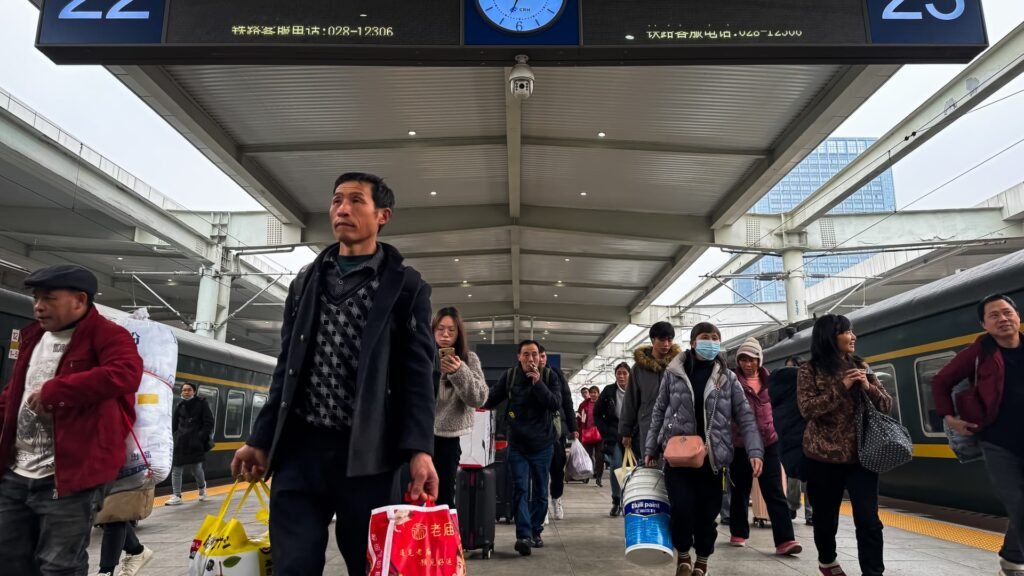
BEIJING — Despite promised government support that has yet to make a significant impact, China’s economy continues to wait for the turnaround anticipated by investors. Policymakers have taken steps such as cutting interest rates and announcing stimulus plans since late September. However, details on expected fiscal support are not likely to be revealed until the annual parliamentary meeting in March. Official GDP figures for 2024 are set to be released on Friday.
BlackRock Investment Institute expressed caution about China’s economic growth, stating that the current fiscal stimulus is insufficient to address the challenges faced by the economy. The firm, which holds a modest overweight position in Chinese stocks, mentioned its readiness to increase investments if the situation changes.
A pressing issue is the decline in domestic demand and concerns about deflation. Consumer prices in 2024 rose by only 0.5%, the slowest increase in at least a decade when excluding volatile food and energy prices. Beijing city mayor Yin Yong highlighted weak consumer spending, declining foreign investment, and growth pressures in certain industries in an official annual report.
The capital city aims for 2% consumer price inflation in 2025 and plans to enhance tech development. While nationwide economic goals will be disclosed in March, senior economic and finance officials have hinted at forthcoming fiscal support, including the issuance of ultra-long bonds to stimulate consumption.
China’s announced stimulus measures are expected to take effect this year, but their significant impact may take time to materialize, according to Mi Yang, head of research for north China at property consultancy JLL. Pressure on the commercial property market is anticipated to persist, with prices possibly dropping further before recovering.
In 2024, rents for high-end offices in Beijing fell by 16%, and a further 15% decline is projected for this year. New shopping centers in Beijing opened with lower occupancy rates than usual, but these rates have since improved significantly within a year.
Unlike the U.S., China did not provide cash handouts to consumers during the Covid-19 pandemic. Instead, the Chinese government announced the issuance of ultra-long bonds for trade-in subsidies and equipment upgrades. The trade-in program aims to boost recycling transactions and stimulate consumer demand.
Nomura’s Chief China Economist Ting Lu expects the sales boost from the trade-in program to diminish in the second half of the year. Real estate, a significant sector in China’s economy, has faced challenges due to government measures to address high debt levels among developers and the impact of the pandemic.
Recent government initiatives to support the real estate market have led to a slight improvement in sentiment and a rally in the stock market. However, concerns remain about high inventory levels in smaller cities and the potential for further declines in property prices.
Tensions with the U.S. have added to China’s economic challenges, with Beijing prioritizing domestic players in strategic sectors like technology for national security reasons. European businesses in China are facing pressure to localize operations to maintain market share, despite increased costs and reduced efficiency.
Chinese officials have emphasized the importance of security in conjunction with development efforts. Beijing’s focus this year is on boosting consumption and policy adjustments to support growth, with more details expected to be revealed after the March parliamentary meeting.




